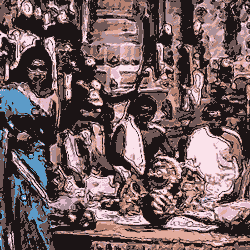Shogi - Indian Origin
by Rani Maheswari
(Salem, Tamilnadu, India)
Shogi a two-player board game known as Japanese Chess is identical to the Asian game Chaturanga which originated in India. Chaturanga has a historical background as described in the great Indian epic "Mahabharata" and was played between two groups of cousins the Pandavas and Kauravas fighting a war.
It is now even accepted by the Japanese historians that Shogi has it's origin traceable to the Indian Chaturanga which was brought to Japan around the 10th to 12th centuries. Though Shogi means General's Board game, still there could be influence of the Mahabharata character Shaguni. Shaguni was the maternal uncle of the Kauravas who were the bad boys in the two groups of cousins fighting for their kingdom.
Knowing the Pandavas were skilled in archery and warfare, it was Shaguni who drew the plan and asked his nehew Duryodhana the Kaurava chief to invite all the Pandavas for game of Chaturanga. When the Pandavas responded to the invitation, Shaguni very cleverly made them play with pledge of their land, property and lastly even their wife Panchali. With his skill in the board game Shaguni helped Duryodhana to defeat the Pandavas and take over their entire kingdom which led to the great Bharata war.
There are various striking similarities to the game of Chaturanga and Shogi. Except for a few alterations such as the extra coins in the forms of Gold General, Silver General and promotion given to the rook, bishop once they move forward to a particular area in the board, there are not much variations.









